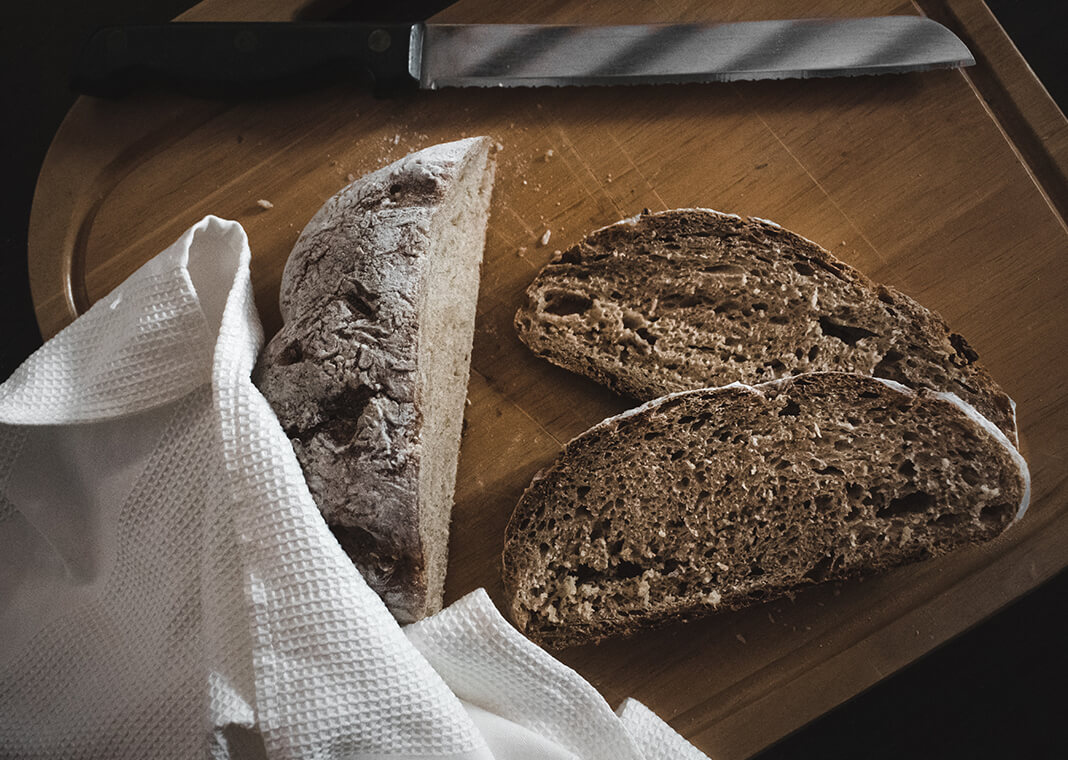
Sometimes when I hear particular Scripture passages, I am brought back to moments earlier in my prayer life when a moment in imaginative prayer felt intensely consoling or transformative in the way that it reshaped my sense of direction or purpose. But the older I get, the clearer it becomes that finding God in the most ordinary and everyday spaces is at least as essential as those “mountaintop moments.” If I believe that God created everything that exists, then every tree, bird, rock, or drop of water in the vast, sparkling ocean continues to speak God’s Word, even if I cannot always put the experience into human language. The divinity reflected back in ordinary moments allows me to receive the divine in a quiet but still significant way. My husband and I take a walk each morning before starting our workdays, usually in a park or other beautiful natural space. I may experience God as present in the beautiful song of the cardinal, in the silhouette of swallows darting high above us, or even in the warmth of sunshine on my skin or the sense of my feet hitting the ground, connected to the earth.
The ordinary is at home too. In March, shortly after a stay-at-home order due to the pandemic, I noticed a consistent theme popping up on my friends’ Facebook and Instagram pages: photos of freshly baked, homemade bread. For me, too, one of my first responses to the sense of anxiety and greater isolation was: I feel the desire—no, a deep-seated need—to bake bread. I knew how to bake a good no-knead white bread loaf as well as scones, banana breads, and other quick breads, but often did not have the time. Sure, we did yogurt biscuits or pancakes on the griddle some Sundays, but life has not often afforded me the time to make dough that needs time to rise, be punched down, rise again, and finally be baked later in the day. This spring and summer, it has been different.
For the first time I was drawn to begin a sourdough starter, as yeast was hard to come by in my grocery store. I remembered that my mother’s mother used to make a Latvian rye sourdough bread, and while I did not have all the ingredients for her recipe on hand, even my simple sourdough was a way of connecting back to my grandmother. In my family’s Latvian cultural tradition, a new bride receives sourdough from her mother before she begins her own household. The starter goes with her to begin her own household baking. While that was not part of my own wedding festivities, I do have the old wooden bin in which my grandmother let her bread rise, and so for me, baking bread links me to prior generations, even to those who have passed before me.
My first batch of sourdough, alas, was too sour; I had not treated the mix quite right, and the lactic acid created by the yeast was too strong. But I started a new one and then kept working on properly feeding it. Eventually I had just the right degree of sourness, a sourdough bread that was slightly tart, chewy on the inside, and crusty on the outside.
My friend, Mary, asked whether I would share my starter with her, and I over-excitedly said, “Yes! And did you know: this is just like a parable of Jesus?” Jesus said it first: the kingdom of heaven is like yeast that a woman took and worked into flour until the whole thing was leavened (Matthew 13:33). As we still had mandatory social distancing in place, I left Mary a jar on my porch, and she left me a bag of flour for my next batch of bread.
The wonderful secret that I find in Jesus’ image of the yeast is this: most of the action in what I do is not just my own. Instead, we have to work a little bit with what God is already doing for and with us and then share it. Just as the yeast in sourdough starter makes the dough rise, and I have to pay attention and work with the dough, so too it is with the projects that God gives us. My vocation is that of a teacher, and when I teach, I don’t think of myself so much as instilling information in my students, nor even forming them into the kinds of people that I wish for them to be. It feels much more like accompanying God in God’s own process of working in and through them as they grow into maturity intellectually, socially, and spiritually, through reading and discussing texts together. I hope that when I or a family member supports a political movement, even through a simple act like a phone call to an elected official or teaching a little differently this year, that God is in those ordinary moments of “rising up,” too.
God’s reign coming about in our world is like a sourdough starter that a baker took and worked into flour until the whole thing rose up. Of course, it does not stop there. We need a lot of bakers, and our yeast is passed on from person to person, baked then into bread that is made to be broken and distributed and shared again and again. No wonder that Jesus used bread and wine as elements for the Eucharist! The ordinary becomes the extraordinary, a way of connecting with one another across space and time.
I think about this often when I break bread with my family or enjoy my other family members’ baking. God is in the texture of freshly baked sourdough bread as much as in those life-changing moments of prayer. God is in the ordinary everyday actions in our lives, no matter how small, that help God’s kingdom come to be.
Photo by Mathilda Khoo on Unsplash.
